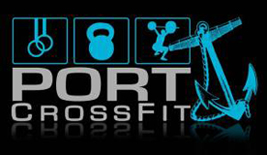We get questions on eating quite a bit, but to be honest, I wish we got them more. Unfortunately, still to this day, there is an alarming amount of people who do not prioritize protein at the level they should. Consuming protein is not just about growing clunky muscles, and popping out of the sleeves of a tee shirt, its about much more; Few bullet points on the importantce of protein intake;
- Muscle Maintenance and Growth: Protein is crucial for maintaining and building muscle mass. Whether you’re an athlete looking to gain muscle or someone concerned about age-related muscle loss, protein intake supports muscle health.
- Appetite Control and Weight Management: Protein-rich foods can help you feel fuller for longer, which can aid in controlling your appetite and potentially lead to reduced calorie consumption. This can be beneficial for weight management and maintaining a healthy body composition.
- Energy Production: While carbohydrates are the body’s primary energy source, protein can be used as an energy source when needed. This is especially important during periods of low carbohydrate intake, such as fasting or intense physical activity.
- Improved Metabolism: Protein has a higher thermic effect compared to carbohydrates and fats, meaning your body expends more energy (burns more calories) to digest and metabolize protein. This can contribute to a modest boost in metabolism.
- Tissue Repair and Immune Function: Protein is essential for repairing and maintaining various tissues in the body, including skin, hair, and organs. It also plays a role in supporting the immune system, as antibodies are proteins that help defend against infections.
But how much protein should I eat in a day? The RDA recommends .8g/kg or .36g/lb of body weight. On average this might look like something as low as 50-75g of protein per day if you are ranging from 125-165lbs. Lets break that down a bit more. It’s important to consume an adequate amount of daily protein to support the functions listed above, but the exact amount can vary depending on factors like age, activity level, and overall health. A bit deeper, The RDA is instructed to list minimum values for your most basic functions, it is not taking into consideration things like exercise, type of exercise, frequency of exercise, daily stress, current goals, tissue health, daily sleep amounts, age and more. You can get the idea that the slightest bit of exertion can require a bit more protein, or someone who takes 15,000 steps in a day may need a bit more fuel. Lets create an example; For someone who exercises 3-5x per week, male or female, between the ages of 18-35, having a goal of remaining lean or reducing body fat, we’ve seen benefits of protein intake approx .8g-1.2 per lb of lean body weight. If someone exercises more, has a soft tissue injury, older in age (yes, older), or wanting to increase muscle quality/muscle mass, we have seen that number go up to 1.2-1.5x bw with little to no negative effects by over eating that specific macro nutrient. In most cases, if you are nearing your bw in 1g of protein per lb, you are in a pretty good boat. Although measuring protein is the best way to know what you are eating, we can understand this doesnt work for everyone. Here are a few other ways;
- Eat protein with every meal – If you are eating the standard 3 meals per day and having at least a serving of protein it will usually get you in the ball park.
- Read labels of your food – If you are able to eat at a meal prep or prepare your own food, reading the labels before cooking can help a great deal to know your intake
- Use the palm of your hand as a reference – 1-2 palms (thickness/circumference), can usually be an “okay” indicator on the amount of protein to eat. Varies between meats but if you are changing up your proteins it tends to balance out.
- Protein Supplement post workout – as we mentioned, more exercise requires more protein for more reasons than 1. Adding a recovery shake to your workout can help ensure you are eating enough protein to adapt to your activity level. Not to mention, protein will help repair from your workout.
*Disclaimer – this post is created based on what we’ve seen from our clients, collected data from university studies, learned from educational courses and read in journals from experts. We do not believe that any of the above is a 1 size fits all guide and further, does not take into account any medical history. Before creating drastic changes in any diet or nutrition guideline we reccomend consulting with a doctor prior to doing so.

